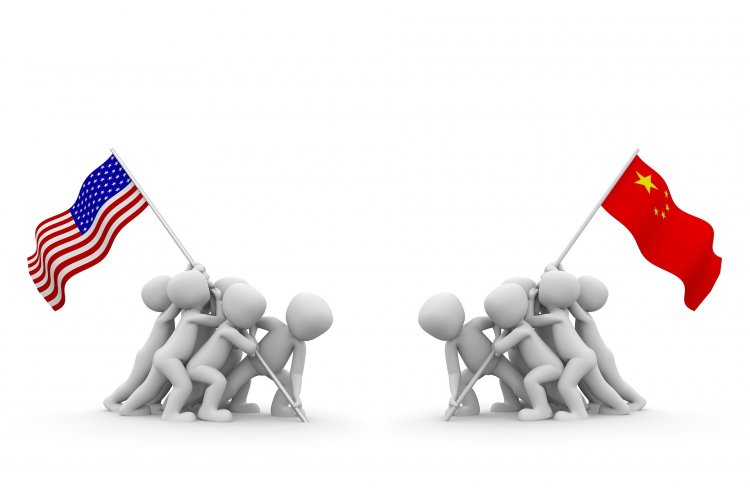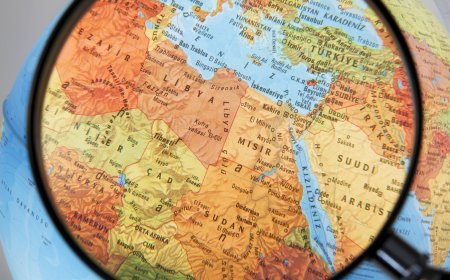Geopolitical competition between the US and China is taking central stage in global affairs. Growing tensions and rivalry between the two are exacerbating competition in regions such as South East Asia, the Indo-Pacific, the Gulf, Latin America and Africa. US President Biden has identified countering China as one of the main strategic priorities of his foreign policy and this struggle is played out on the African continent. This has already been documented to the extent that some claim its significance to be exaggerated. Nonetheless, it is important to consider how regions in the Global South may actually utilise this rivalry. This paper considers how African governments can use rivalry between foreign powers to their advantage and even profit from it. Turning focus towards the strategies of African governments allows for a better analysis of how they can bolster agency in their relations with these rival partners. This briefing argues that African governments should avoid the zero-sum trap (especially when dealing with US-Chinese rivalry), adopt strategies that strategically play rivals against each other and implement embedded domestic policies and strategies.
Avoid the zero-sum trap
China's engagement with Africa is often presented as a spectre by US officials during meetings with African leaders, with both Republican and Democrat Secretaries of State warning of the dangers presented by China in their formal visits to the country. They strongly emphasize the need for African leaders to behold China's economic aggressivity, lack of morality and neo-colonialism in Africa. This rhetoric could be seen in Hilary Clinton’s concerns around engaging with China when she was secretary of state in 2010/11. In 2020, Mike Pompeo also indirectly referred to China and Russia when warning African leaders to be careful of the empty promises of authoritarian regimes that lead to dependency, corruption, debt and instability on the continent.
African leaders have stipulated that they do not wish to be used as pawns in a proxy rivalry and that their main strategic priority is partnership diversification. According to UNCTAD's 2021 world investment report, China was Africa's fourth investor in FDI stock between 2015 and 2019, after the Netherlands, the United Kingdom and France. Chinese investments have increased from USD 35 billion in 2015 to USD 44 billion in 2019. Yet some analysts have argued that African leaders’ preference of neutrality is insufficient. Others have drawn attention to the bad optics of accepting the construction of administrative buildings through Chinese state funding, such as the future Ministry of Foreign Affairs in Kenya, arguing that this could hinder their relationship with the United States. This is mainly due to fears that bugs could be installed during construction, following the discovery of surveillance materials in the headquarters of the African Union that was gifted by China. There is a legitimate need for better transparency and vigilance around potential secret surveillance, yet while focussing solely on this may assuage the fears of the US, advising this to African governments as a way not to be trapped in great power rivalry may restrict Africa’s strategies to those of a mutually exclusive zero-sum game.
African economies are facing a crisis induced by the COVID-19 pandemic. They are in need of several partnerships and should exploit the silver linings presented by great power rivalry. As discussed by Branko Milanovic, those who once played the US and Soviet Union against each other could do the same with the US and China. This rivalry should be considered as a positive outcome for developing countries: if the US and China compete for their support, African countries can leverage to get more resources (investment flows, development assistance, infrastructure funding and better trade agreements) to boost their growth and reduce poverty.
Play one rival against the other
Analyses of geopolitical competition generally focus on how China and Russia are challenging traditional US and European partners in Africa without considering the continent's increasing engagement with emerging economies such as India, Turkey and the EAU. These partners have increased the number of embassies on the continent and have led to dynamic economic diplomacy aimed towards market and infrastructure opportunities for their respective interests. Indian and Turkish contractors are competing with China for mining contracts in Africa, which could be fruitful if negotiations are played correctly. Rivalry largely takes place in Guinea’s mining sector between China and Russia, and negotiators there found a silver lining in pitting both parties against each other. Chinese negotiators were keener to re-evaluate the clauses of their contracts and to comply with requests when the Guinean government played the 'Russia card'.
The strategy of playing one rival against the other also proved advantageous to Ethiopian negotiators in the attribution of the first telecom licenses in 2021, an operation dubbed 'the deal of the century'. By requiring new operators to build their own infrastructure or lease it from the state company (Ethio telecom) instead of third-party tower operators, the Ethiopian government selectively limited the number of contenders by prioritising its national interests. This enabled them to circumvent final bids between the MTN/China-backed consortium and the US backed Safaricom-Vodafone company, the latter of whom was awarded a USD 850 million package which includes provision of new infrastructure and jobs.
Implement embedded policies and strategies
African governments should determine how offers from rival partners can best align with their national development priorities. As stated by Kandeh Yumkellah, a Sierra-Leonian development economist and former Director of United Nations Industrial Development Organization: "Africa needs all partners. We need to be smart and eclectic, picking what works for us depending on time and context".
In order to achieve this, I argue that five key measures are required: firstly, the 'take-it-all' mentality of accepting short term, opportunistic offers should be avoided. Loans, grants and donations should fit African countries national development plans and translate into projects that will directly affect people's living standard.
Secondly, African governments should adopt more integrated and comprehensive policies. Senegal adopted an embedded strategic plan (Plan Emergent Senegal) that included sector-specific priorities via their Bureau de Prospective Economique (Economic Prospective Unit) attached to the Presidency. Members of the unit selectively choose which foreign partners have the best potential to carry out these priorities. Diversifying partners via a selective and strategic approach also allowed Senegal to be less dependent on their old partnerships with France or their newer partnerships with China.
Thirdly, geopolitical rivalry is also taking place in other regions such as Latin America and Southeast Asia. Learning how some of these regions deal with this may present an opportunity to enhance the strategies of African governments.
Fourth, a coherent strategy requires enhancing the capacity of African bureaucracies to deal with China, Russia, Turkey and India by building an internal pool of experts with knowledge of their modi operandi, cultures and languages. In the short term, African leaders can rely on the expertise of former African students who were trained in the universities of such countries to provide expertise and language skills. More research centres dedicated to the study of these countries in local African universities could enhance local knowledge production and generate expertise for African governments.
Fifth and finally, African governments should take the best of both worlds by promoting more trilateral or quadrilateral cooperation between new and traditional partners, such as the joint infrastructure projects carried out by Chinese and French enterprises. Bridging rivalry through various forms of collaboration mobilizes additional pools of finance and avoids project duplication. Furthermore, African governments should take their own citizens' opinions on this topic into account. A recent survey conducted by Afrobarometer between 2019 and mid-2021 across 34 countries showed that 62 % see China's influence in Africa as positive, similar to the 60% who said so in the case of the US. This suggests that US-China rivalry may not constitute an either-or dilemma for ordinary African citizens, but rather a win-win situation. It is up to African governments to make use of the benefits that these rivalries present.
About the Author
Dr Folashadé Soulé is a Senior Research Associate at the Global Economic Governance programme (Blavatnik School of Government), University of Oxford. Her research focuses on Africa-China relations and negotiations, the study of agency in Africa’s international relations and the politics of South-South cooperation.




